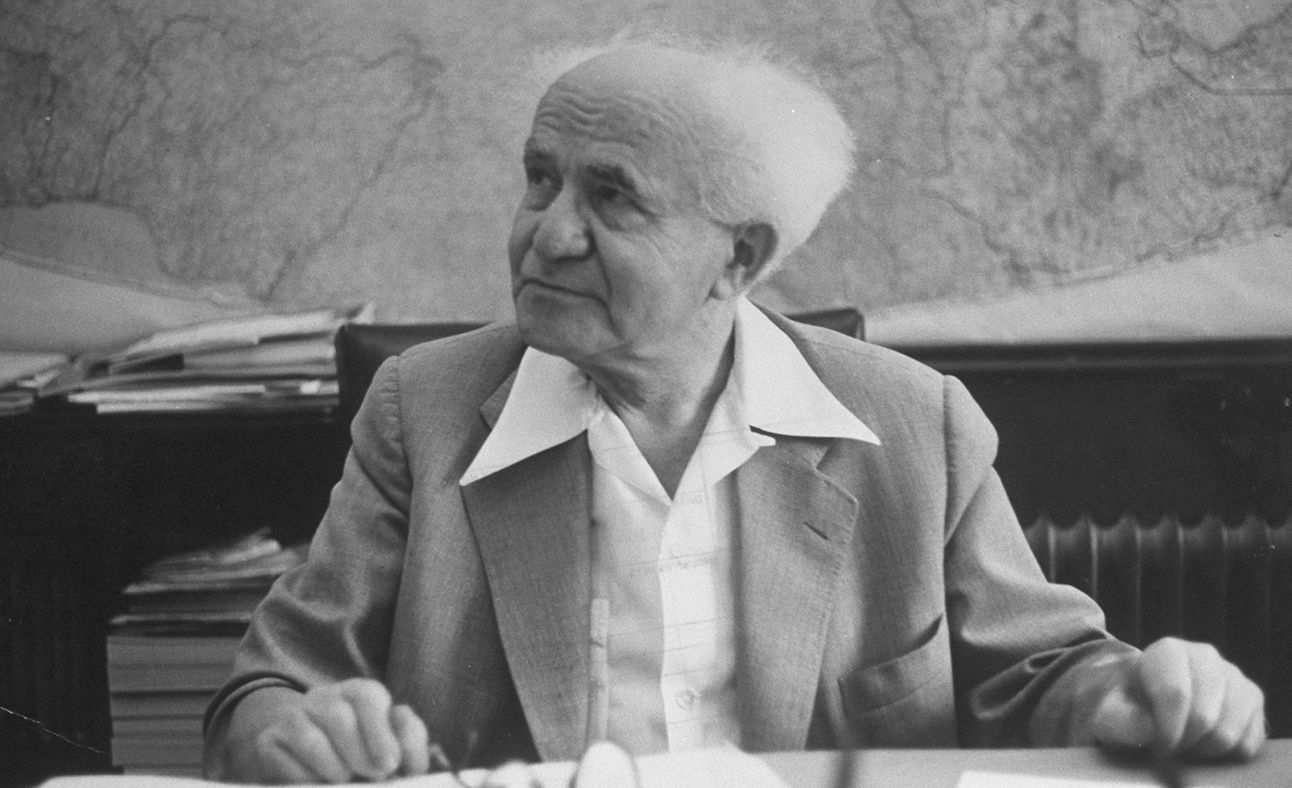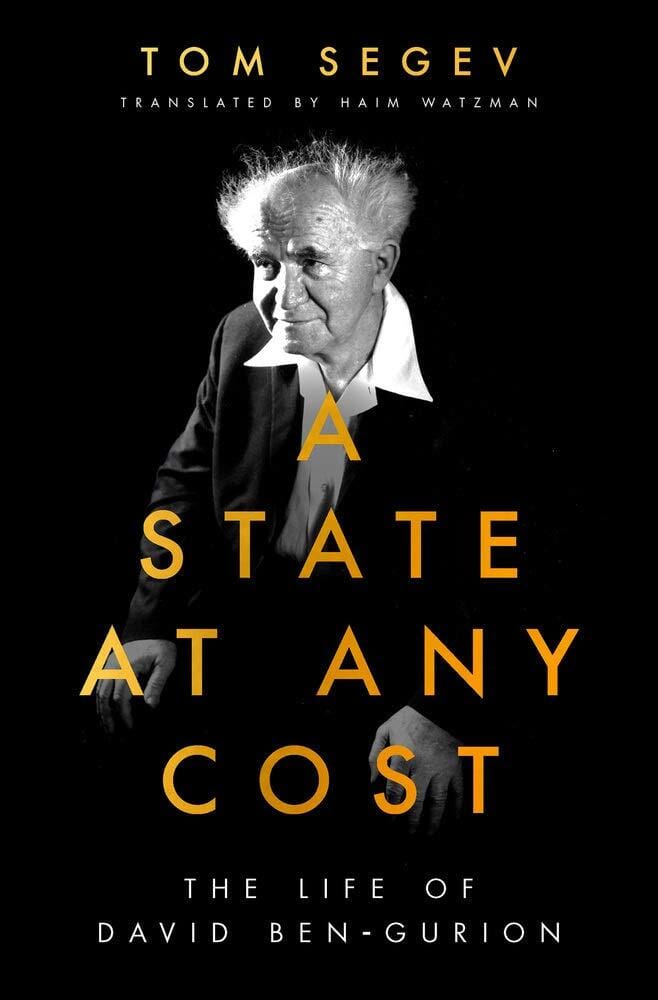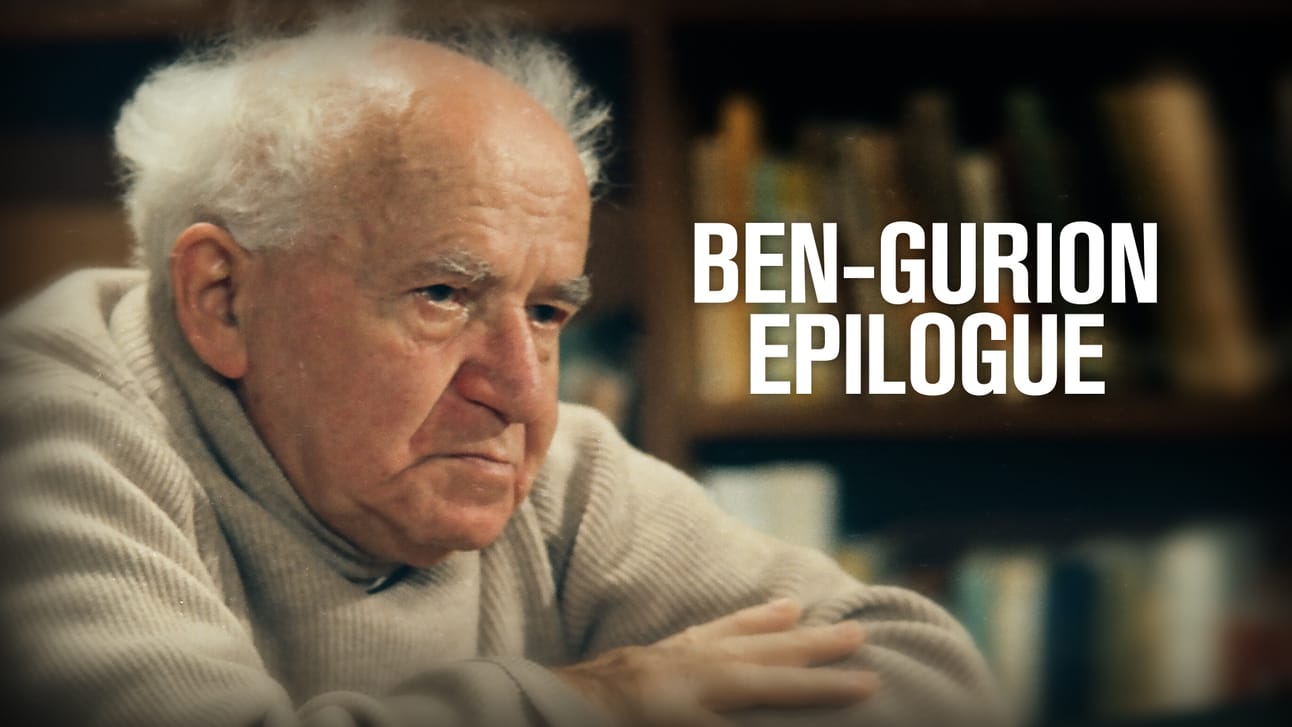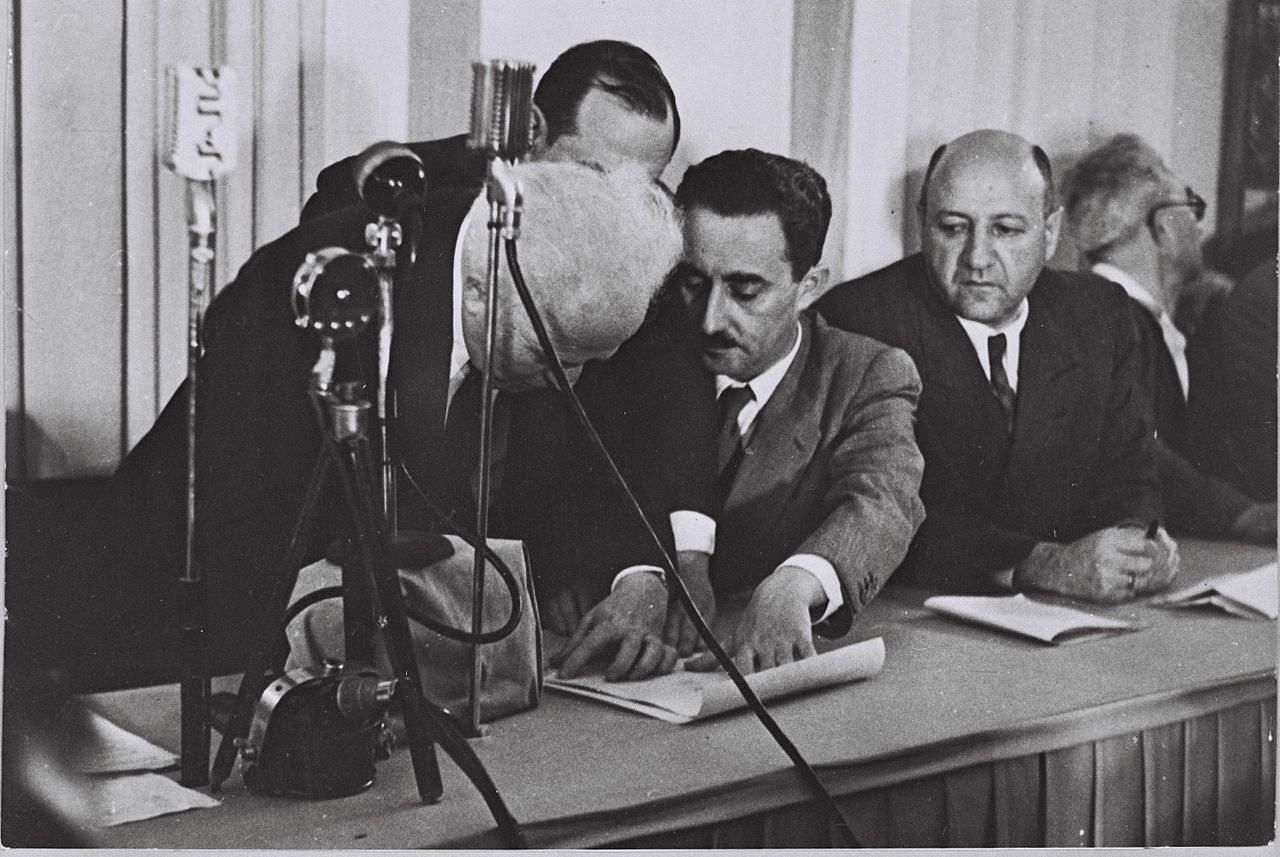- The Weekly Mensch
- Posts
- The Weekly Mensch: David Ben-Gurion
The Weekly Mensch: David Ben-Gurion
The Relentless Architect of Israel: Vision, Values, and the Grit of Nation-Building
Us in a Nutshell
We are passionate about the lives, the impact, and the experience of Jewish baby boomers who have changed our world. From finance to the arts, we write about the stories of contemporary heroes who — significantly and meaningfully — changed the face of their respective industries, often starting with nothing but a legacy of exile. We tell their stories for the timeless lessons of intelligence, ethics, and resilience they underline. And we also share some fun anecdotes! Nathan Tob is a fourth-year student at the Queen Mary University of London. He studies Economics, Finance, and Management. Davy Sokolski is a third-year student at Columbia University in New York. He studies International Political Economy.
What is a Mensch?
Leo Rosten defines a mensch as “someone to admire and emulate, someone of noble character.” Dr. Saul Levine writes in Psychology Today that a mensch’s personality characteristics include decency, wisdom, kindness, honesty, trustworthiness, respect, benevolence, compassion, and altruism.
Ben-Gurion’s Rapid Bio

Credit: Mozaic Magazine
David Ben-Gurion, born David Grün on October 16, 1886, in the small town of Płońsk in Russian-ruled Poland, grew up immersed in Zionist ideals. His father, a lawyer and passionate Zionist, instilled in him a fierce commitment to Jewish self-determination. From an early age, Ben-Gurion believed that the Jewish people’s future could only be secured by a return to their ancestral homeland. At just 20 years old, he immigrated to Ottoman Palestine, joining a generation of pioneers determined to work the land, build a national home, and revive Jewish sovereignty.
In the swamps and fields of the Galilee and Judea, he lived the ideals of labor Zionism, believing that Jewish independence would rise from both the plow and the pen. He co-founded the Histadrut (General Federation of Jewish Labor), led the Mapai party, and emerged as the political and strategic leader of the Yishuv, known for his iron discipline, intellectual rigor, and relentless pragmatism. He read Aristotle and military doctrine with equal passion, and his tiny frame carried the weight of historic decisions.
On May 14, 1948, in a modest room in Tel Aviv, Ben-Gurion declared the independence of the State of Israel, fulfilling a two-thousand-year-old dream. As Israel’s first Prime Minister and Minister of Defense, he guided the newborn state through its War of Independence, organized mass immigration, and laid the foundations for its institutions—military, legal, and civil.
Ben-Gurion believed in the power of moral leadership and bold action. He pushed through difficult decisions, from accepting the UN Partition Plan to prioritizing the absorption of Holocaust survivors and Jews from Arab lands, often at great political cost. Though he resigned from politics twice, he remained a spiritual guide of the nation, retiring to the Negev kibbutz of Sde Boker to symbolize his belief in settling the desert as a national mission.
David Ben-Gurion died in 1973 at the age of 87, but his voice and vision still echo through Israel’s history. He was not just a founding father—he was the embodiment of the idea that Jewish destiny could be reclaimed through action, courage, and sacrifice.
Ben-Gurion’s Life Lessons
1. History is made by those who show up early and stay late
David Ben-Gurion didn’t wait for the world to open a door for him—he built one. As a young man, he left behind Plonsk, Poland, to join the pioneers draining swamps and planting trees in Ottoman Palestine. When others debated, he acted. When the British left Palestine in 1948, chaos loomed, but Ben-Gurion stood at the Tel Aviv Museum and declared the birth of the State of Israel anyway, knowing war would follow within hours. He believed that history wasn’t made by grand speeches or polished plans, but by showing up early, doing the unglamorous work, and staying through the storms. Behind the Israeli miracles were years of tireless groundwork. Whether mobilizing the Haganah or building the national water carrier, Ben-Gurion outlasted every doubt by being present, prepared, and persistent.
Legacy isn’t built in moments of glory, it’s forged in the quiet consistency of showing up before it’s popular, and staying long after it’s comfortable. Ben-Gurion reminds us that the people who shape history aren’t necessarily the loudest—they’re the ones still standing when the hard work begins. Whether building a company, a movement, or a nation, success comes to those willing to dig in before the spotlight arrives and stay through the chaos that follows.
2. Security is built on values as much as strength
David Ben-Gurion understood that a nation’s security couldn’t rely on military power alone; it had to be grounded in moral clarity and shared purpose. As Israel’s first Prime Minister and Defense Minister, he was a fierce advocate for building a strong army. Yet, he simultaneously emphasized the need for ethical leadership, civil institutions, and education. In the early 1950s, when the young state was still reeling from war and absorbing hundreds of thousands of immigrants, Ben-Gurion insisted on establishing universities, kibbutzim, and a judiciary system alongside the IDF. One of his most famous actions was the controversial decision to accept German reparations after the Holocaust, not out of forgiveness, but because he believed rebuilding the Jewish people required difficult, principled choices. “Without moral and intellectual independence, there is no anchor for national independence,” he said. For Ben-Gurion, the soul of the state mattered as much as its sword.
Lasting security isn't just about borders and weapons—it's about identity, values, and vision. Ben-Gurion’s legacy reminds us that true resilience comes from the strength of a people’s ideals. Protecting what we build requires more than force—it demands a foundation of integrity, education, and courage in the face of complexity. It's not enough to be strong; we must also be right.
3. Dream like a prophet, act like a farmer
David Ben-Gurion’s leadership wasn’t just political—it was deeply spiritual and practical. He envisioned a Jewish state that would be not only a refuge but a renaissance: democratic, moral, and industrious. But for all his lofty dreams, he never shied away from the grit of nation-building. After stepping down as Prime Minister, Ben-Gurion moved to the remote Kibbutz Sde Boker in the Negev Desert. There, among young pioneers, he labored the land, believing that developing the Negev was the key to Israel’s future. To many, it seemed symbolic—but to him, it was the essence of Zionism: to transform barren ground into life. He once said, “In Israel, in order to be a realist, you must believe in miracles.” That balance of prophetic vision and practical action defined his legacy.
Ben-Gurion’s life teaches us that real progress comes from holding a bold vision while rolling up our sleeves. It’s easy to idealize change, it’s harder to commit to the work of building it. The most impactful people are those who don’t just dream big, but who act on those dreams with relentless discipline and grounded effort. Like Ben-Gurion, we must dream like prophets and act like farmers.
The Quote of The Week
“Courage is a special kind of knowledge: the knowledge of how to fear what ought to be feared and how not to fear what ought not to be feared.”



Reply